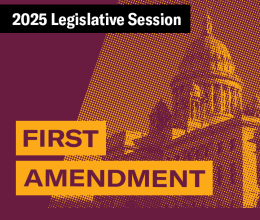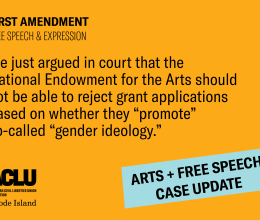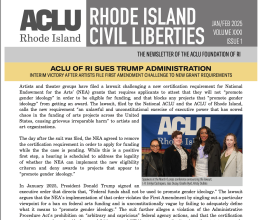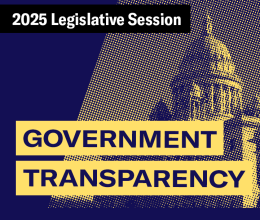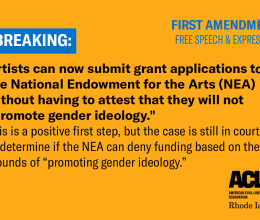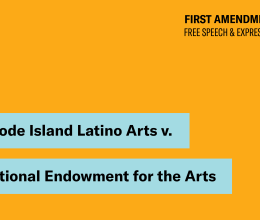Claiming that the ruling has “significant ramifications for First Amendment rights,” the ACLU has called on the state Board of Elections to reverse its decision barring Cranston Mayor Stephen Laffey from continuing to host a radio talk show on WPRO. That ruling held that Laffey’s “receipt of airtime” from WPRO constituted an illegal “in-kind political contribution” from a corporation.
In a three-page letter sent to Board of Elections Chair Roger Begin, R.I. ACLU executive director Steven Brown wrote: “[T]he Board, in making this decision, failed to adequately consider both the unprecedented nature of the scope of its interpretation of campaign finance law and the significant ramifications of this ruling for First Amendment rights.”
The letter called “quite problematic” the Board’s broad interpretation of the term “candidate” as applied to Laffey, noting that “all public officials are potential candidates. They often raise money throughout the course of a term. The Board’s ruling makes it difficult for any public official to appear on a regular basis in any broadcast, print or other medium.”
The letter also argued that the Board’s attempts to distinguish Mayor Laffey’s situation from other on-going scenarios – including that of a Jamestown resident running for town council who writes a free pet column for a local weekly, and the many public access cable TV shows hosted by public officials – “fail to hold up to close scrutiny.”
Instead, said the ACLU letter, the answer is found in the “equal time” doctrine of the Federal Communications Commission, which requires radio and television stations to give equal air time to political candidates. “When Mayor Laffey appropriately qualifies as a candidate for office that triggers FCC standards regarding ‘equal time,’” said the ACLU, “WPRO and the Mayor will be subject to certain constraints.” However, whatever legitimate issues there may be in terms of FCC provisions governing equal time, the letter continued, there has not been a claim that they presently apply.
Concluded the letter: “By barring a public official – solely because he is a public official – from hosting a radio show, the Board has gone far beyond the bounds of campaign finance law and directly restrained both a public official and a media entity from the exercise of free speech rights. The lack of any consistent, comprehensive rationale for its ruling can only further chill the exercise of political free speech by others.” The letter therefore called on the Board to reconsider its decision.


